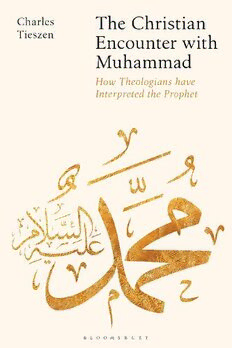
The Christian Encounter with Muhammad: How Theologians Have Interpreted the Prophet PDF
231 Pages·2021·8.974 MB·English
Most books are stored in the elastic cloud where traffic is expensive. For this reason, we have a limit on daily download.
Preview The Christian Encounter with Muhammad: How Theologians Have Interpreted the Prophet
Description:
To medieval Christian communities, Muhammad–the leader of a religious and political community that grew quickly and with relative success–was an enigma. Did God really send him as a prophet with a revelation? Was the political success of the community he founded a divine validation? Or were he and his followers inspired by the something evil? Medieval Christians of all kinds posed these questions and tried to answer them in their attempts to make sense of his appearance.In spite of their attempts, modern Christians continued to be puzzled by Muhammad. The Qur'an provided a framework for understanding and honouring Jesus; was it possible for Christians to reciprocate with regard to Muhammad? In light of persisting incendiary remarks made by Christians about Muhammad, could something more productive and respectful be said about him?This book draws these two eras of literature about the prophethood of Muhammad together. Doing so achieves two main goals. First, this book introduces some of the most important medieval assessments of Muhammad–resources often neglected by modern and contemporary studies–to a readership that might otherwise find such texts inaccessible. Second, this book applies the same analysis to modern assessments of Muhammad that it does to medieval texts in order to demonstrate the continuities and disparities present in literature from the two eras. Having done so, the book is able to offer a fresh appraisal of Muhammad that considers the widest possible history of the ways in which Christians assessed his prophethood.
See more
The list of books you might like
Most books are stored in the elastic cloud where traffic is expensive. For this reason, we have a limit on daily download.
